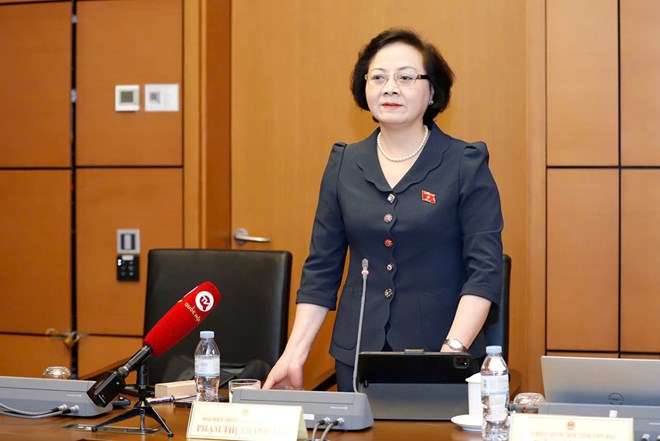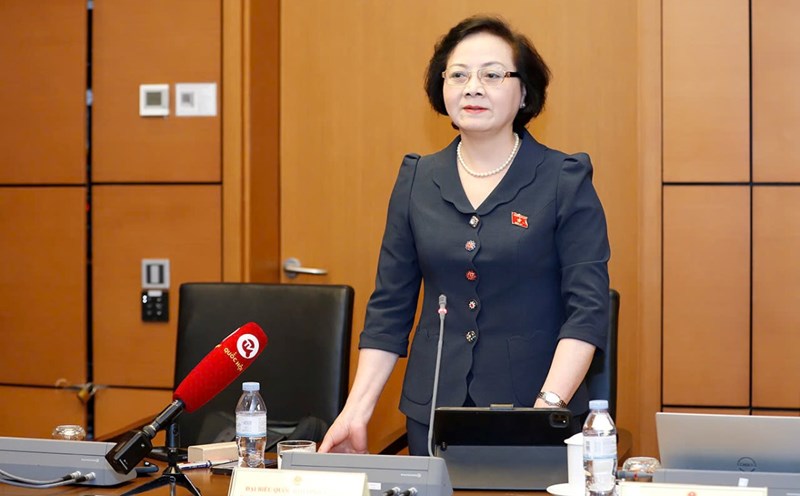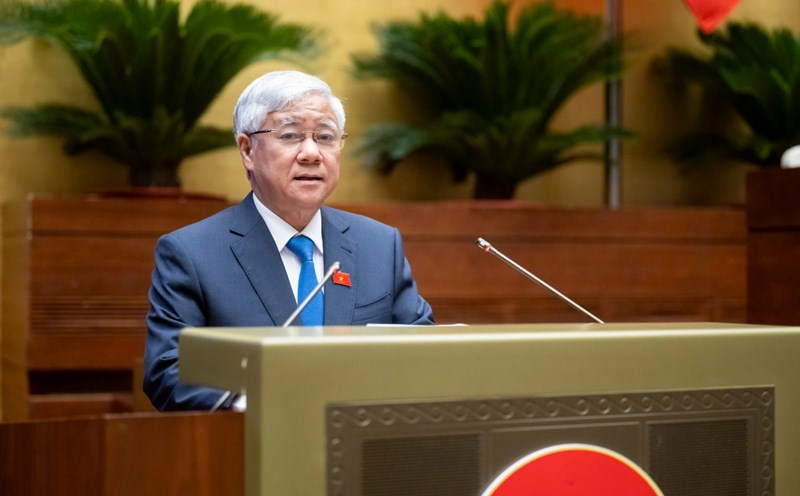At the discussion session of the 8th Session of the 15th National Assembly, Minister of Home Affairs Pham Thi Thanh Tra said that our country has controlled inflation very well when implementing salary reform.
In 2023, our country increased the basic salary by 20.8%. In 2024, from July 1, the salary for cadres, civil servants, public employees and public sector workers will increase by 30%. At the same time, our country will also adjust the pension and allowance regime for other subjects.
According to Minister Pham Thi Thanh Tra, Resolution 27 on salary policy reform will be evaluated by 2026, and then continue to be implemented accordingly.

Regarding the issue of whether to adjust the basic salary annually or not, the minister said that this depends on the country's economic conditions. For now, it can be temporarily suspended in 2025, and then adjusted for some subjects.
Speaking with Lao Dong, Associate Professor, Dr. Bui Thi An - Member of the 13th National Assembly - commented: “Increasing the basic salary aims to improve the endogenous capacity of workers, which is the basis for increasing labor productivity and GDP growth”.
"In the context of the country's many difficulties, increasing the basic salary is a difficult thing to do, but we have done it in recent years. Whether or not there will be a salary increase in the future depends on the country's economic conditions. However, on the part of workers, there is always a desire for a salary increase to ensure their living standards. To do this in a harmonious and balanced way is the responsibility of the state management agency," Ms. An shared.
Expressing her opinion on this issue, Dr. Nguyen Thi Lan Huong - former Director of the Institute of Labor Science and Social Affairs (Ministry of Labor, War Invalids and Social Affairs) - said that the salary reform project is still expected by many people after the basic salary increase from July 1, 2024.
The salary according to the job position of civil servants is not the same as the salary according to the job position in enterprises. Currently, enterprises have a table describing specific job positions for each individual and each job.
In the public sector, including both civil servants and contract workers, workers entering the civil service are entering the public service system. Workers can work in many different job positions, each position is associated with a different job and salary level.
Civil servant salaries are not negotiated; employees who become civil servants accept the salary according to their position, which is pre-calculated according to the salary scale. However, the performance of civil servants not only affects the agency or unit but also the whole society. Therefore, the effectiveness of salary construction according to job position will affect the whole society.
Ms. Huong gave an example: "Today, a worker may be a ministerial-level civil servant, but tomorrow he will be transferred to work at the district level. The job position will change, so the salary will also change according to that job position. If the salary is good and suitable for the job position, it will motivate civil servants to contribute and work, thereby creating a breakthrough in building and developing the country."










